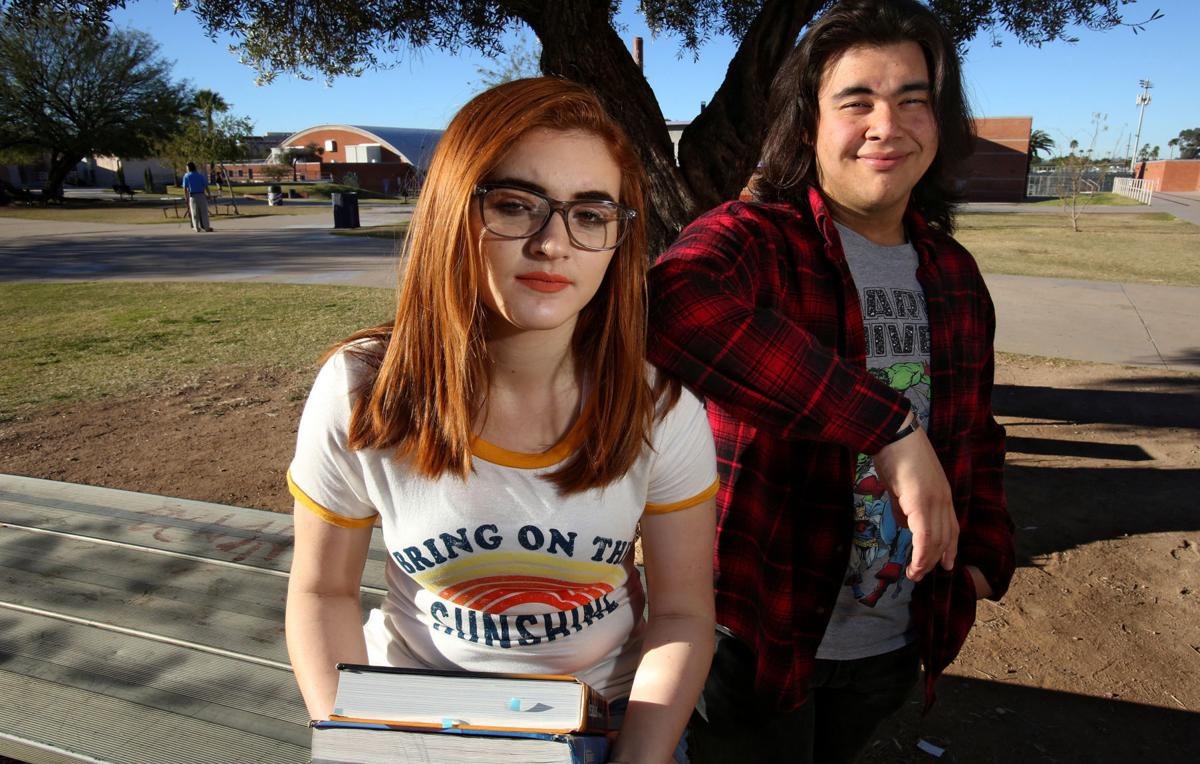Arizona high schools remain hostile environments for lesbian, gay, bisexual, transgender and queer students due to a lack of support and resources, according to findings from a recently released survey.
The Gay, Lesbian and Straight Education Network (GLSEN), which has administered the survey since 1999, argues that the presence of school-based supports for LGBTQ students results in lower levels of harassment and better educational outcomes.
For Arizona specifically, the report found that the vast majority of LGBTQ students regularly heard anti-LGBTQ remarks and had been victimized at school. It also found that many LGBTQ students in Arizona reported discriminatory policies or practices at their schools.
“We have so much work to do, but we have seen what works in Southern Arizona to improve school climates for LGBTQ students: supportive educators, anti-bullying policies that specifically protect LGBTQ students, inclusive student clubs and school curriculum that positively reflects LGBTQ topics,” said Benjamin Lebovitz, chair of GLSEN Tucson.
Rikki Woods, a Rincon High School junior who is bisexual, participated in this year’s GLSEN survey. While she wasn’t exactly surprised by the results, Woods said the problem is larger than she would have guessed.
“A lot of people who don’t really know much about this issue don’t really understand how many problems the LGBTQ community does face,” the 16-year-old said. “A lot of people assume that it’s not really a big deal because people can get married now.”
Woods said that schools could work toward making the environment more welcoming for LGBTQ students by raising awareness of these issues, especially by administrators.
“It’s not always directly toward me, but I hear gay as a derogatory term more than I would like to hear it,” Woods said. “Also a lot of men talking about being OK with women being lesbians but not men being gay. I’ve seen a lot of people sexualizing lesbians, which I don’t really like.”
Ethan Smith Cox, director of development for the Southern Arizona Aids Foundation, suggests that the nature of Arizona’s conservative government and public school system is partially to blame for the lack of healthy conversation and discussion.
Just last week at the federal level, transgender students lost protections that allowed them to use school bathrooms and locker rooms matching their gender identities.
The Trump administration came down on the side of states’ rights, lifting Obama-era federal guidelines that had been characterized by Republicans as an example of overreach.
Without the Obama directive, it will be up to states and school districts to interpret federal anti-discrimination law and determine whether students should have access to restrooms in accordance with their expressed gender identity and not just their biological sex.
“Obviously no one chooses to be gay and nobody chooses to feel like they’re a different gender than they are,” Cox said. “So it’s one of those things that they just need a lot of support, and not talking about it at school is implicitly saying there’s something wrong with this.”
WORK IS UNDERWAY
Tucson’s largest school district is working to implement positive resources for its students in light of the survey results.
An ongoing challenge has been students not realizing the impact of what they say, said Tamara Hille, coordinator of the Tucson Unified School District’s guidance and counseling department.
“Some things I think we should continue increasing is more self awareness at our schools, working with our students to increase awareness of what they’re saying and how others could possibly perceive that,” Hille said. “That could happen through classroom guidance, through clubs and doing lunchtime activities to support this.”
In May, all counselors will be trained on LGBTQ issues. The hope, Hille said, is that the counselors can then work with teachers and support staff to aid students.
One specific finding in the GLSEN study was that LGBTQ students in Arizona did not have access to in-school resources and supports.
Hille said that all students in TUSD are allowed to participate in activities related to LGBTQ issues, and that clubs like Gay-Straight Alliance are present in a number of schools. Counselors are also available to students, either to provide individual support or to refer students to community resources.
Additionally, TUSD has a zero-tolerance policy for bullying and harassment, Hille said. Earlier this month, the district implemented a new hotline and website where students can report bullying or harassment . From there, the issue could be addressed on-site.
The nine major school districts in the Tucson area all have nondiscrimination policies, but only five specifically mention sexual orientation.
Hector Pacheco, an 18-year-old Rincon senior who is gay, said he personally hasn’t experienced discrimination at school based on his sexual orientation, but he could understand that it might be different for LGBTQ students at other campuses.
Brenda Kazen, a counselor at Rincon who advises the Gay-Straight Alliance Club and has been a member of GLSEN for 15 years, said the biggest issue she sees is microaggressions toward LGBTQ students. She also said she thinks that the classified support staff, like monitors and bus drivers, should receive the same kind of training on LGBTQ issues that teachers do.
For students in need of support, there are a number of programs available within the Tucson community, including a youth center that will be available this summer.
The Southern Arizona Aids Foundation is opening the Thornhill Lopez Center on 4th, which will support LGBTQ youth.
The center, at 526 N. Fourth Ave., will provide a safe space as well as skills-building, advocacy and culturally competent care to LGBTQ youth and their allies ages 13 to 26.





